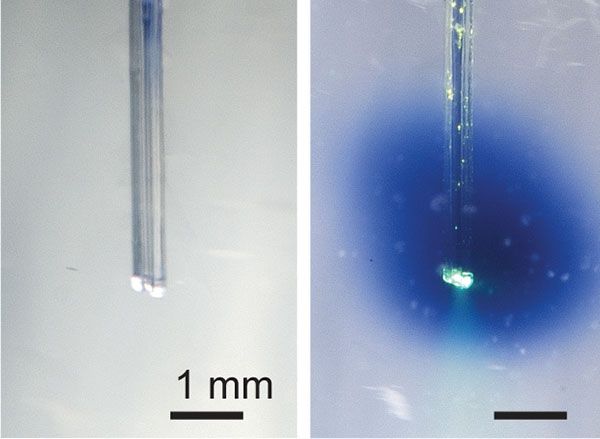When taken orally or intravenously, medications typically travel throughout the body, producing unwanted side effects. MIT scientists are working on an alternative, that delivers both light and a light-activated drug directly to the target area.
So-called “photoswitchable” drugs contain light-sensitive molecules that essentially switch the drug on when exposed to a flash of light. This means that a pharmaceutical could remain inactive when moving through the bloodstream or digestive tract, only becoming active once it reached the place it was needed. As a result, few if any side effects would occur.
That said, how could a flash of light be delivered precisely to the target area, right when the drug was present at that location? Well, that’s where a device developed by the MIT researchers comes into play.
